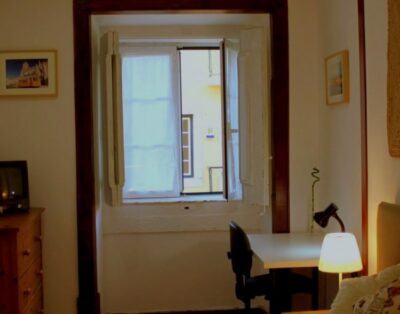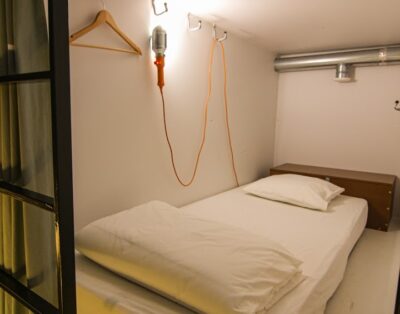Top 10 Things to Look for When Renting a House
When it comes to finding a new rental house, there are many factors to consider. From the location to the price, there are numerous things to keep in mind before signing a lease. To help you navigate the rental market, here are the top 10 things to look for when renting a house.
Firstly, it’s important to consider the location of the rental house. Is it in a safe and convenient area? Is it close to public transportation, schools, and grocery stores? These are all important factors to consider when looking for a rental house.
Secondly, the size and layout of the house should be taken into account. Is there enough space for you and your family? Are the bedrooms and common areas large enough to accommodate your needs? It’s important to make sure that the house suits your lifestyle and needs before signing a lease.
Location and Neighborhood
When searching for a rental property, location and neighborhood are two of the most important factors to consider. The right location and neighborhood can make a big difference in the quality of life and overall satisfaction of the tenant.
One of the first things to consider is the proximity to important amenities such as schools, hospitals, grocery stores, and public transportation. Tenants should look for properties that are conveniently located near these amenities to make their daily life easier.
Another important factor to consider is the safety of the neighborhood. Tenants should research the crime rates in the area and look for properties in safe neighborhoods. This can help ensure the safety of the tenant and their belongings.
Additionally, tenants should consider the overall vibe and character of the neighborhood. Some neighborhoods are family-friendly with lots of single-family homes, while others are more urban and have a hipster vibe with studios and condos. It’s important to find a neighborhood that fits the tenant’s lifestyle and personality.
Overall, when looking for a rental property, tenants should prioritize location and neighborhood to ensure a comfortable and convenient living experience.
Rent and Budgeting
When it comes to renting a house, one of the most important factors to consider is rent and budgeting. Here are some things to keep in mind:
Rent Costs
The first thing to consider is the cost of rent. It’s important to find a rental that fits within your budget. A good rule of thumb is to spend no more than 30% of your income on rent. For example, if you make $3,000 a month, you should aim to spend no more than $900 on rent.
It’s also important to keep in mind that rent costs can vary depending on the location, size, and condition of the rental. Research the rental market in the area you’re interested in to get an idea of what rent costs are like.
Additional Expenses
In addition to rent, there may be other expenses to consider when renting a house. For example, utilities such as electricity, water, and gas may not be included in the rent. It’s important to factor in these costs when budgeting for a rental.
Other expenses to consider may include:
- Security deposit: This is a sum of money that is paid upfront and is usually equal to one month’s rent. It is held by the landlord as a guarantee against any damages or unpaid rent.
- Move-in fees: Some landlords may charge move-in fees, which can include things like application fees, pet fees, and cleaning fees.
- Maintenance and repairs: While the landlord is responsible for major repairs, tenants are usually responsible for minor repairs and upkeep.
By keeping these additional expenses in mind, you can budget more effectively for your rental. It’s always a good idea to have a little bit of extra money set aside in case of unexpected expenses.
Lease Terms
When renting a house, it is important to carefully review the lease terms to ensure that both the landlord and tenant are protected. Here are some key lease terms to look for:
Lease Duration
The lease duration specifies the length of time that the tenant will be renting the property. It is important to ensure that the lease duration is clearly stated in the lease agreement and that both parties agree to the terms. The lease duration can vary depending on the landlord’s preference, but it is typically one year.
Termination Clauses
Termination clauses outline the circumstances under which the lease can be terminated. It is important to review these clauses carefully to understand the conditions under which the lease can be terminated by either party. Some common termination clauses include:
- Early Termination Clause: This clause allows the tenant to terminate the lease early, typically with a penalty fee.
- Breach of Contract Clause: This clause allows the landlord to terminate the lease if the tenant breaches the terms of the agreement.
- Notice of Termination Clause: This clause specifies the amount of notice required before either party can terminate the lease.
It is important to review the termination clauses carefully to ensure that they are fair and reasonable. If there are any concerns or questions about the lease terms, it is recommended to seek legal advice before signing the agreement.
House Size and Layout
When renting a house, it is important to consider the size and layout of the property. The number of bedrooms and common areas are two key factors that can greatly affect the comfort and convenience of living in a particular house.
Number of Bedrooms
The number of bedrooms needed will depend on the size of the household and the individual preferences of each tenant. A single person may only require one bedroom, while a family with children may need multiple bedrooms. It is important to ensure that each bedroom is adequately sized and has enough storage space for personal belongings.
Common Areas
Common areas, such as the living room, dining room, and kitchen, are important spaces for socializing and entertaining guests. When evaluating a house, it is important to consider the size and layout of these areas. A spacious living room and dining area can make a house feel more open and welcoming, while a cramped kitchen can make cooking and meal preparation difficult.
In addition to the size of common areas, it is also important to consider their layout. For example, an open-concept living and dining area can create a sense of flow and connectivity between spaces, while a separate dining room can provide a more formal setting for meals.
Overall, when considering the size and layout of a house, it is important to prioritize the needs and preferences of each tenant. By carefully evaluating the number of bedrooms and common areas, tenants can find a house that meets their unique needs and provides a comfortable and enjoyable living experience.
Condition and Maintenance
When renting a house, it is important to pay attention to the condition and maintenance of the property. A well-maintained house ensures safety, comfort, and helps avoid unforeseen expenses. Here are a few things to look for when inspecting the condition and maintenance of a rental property.
Recent Repairs
It is important to ask the landlord about any recent repairs that have been made to the property. Knowing about recent repairs can give you an idea of how well the property is maintained and the quality of work done by the landlord.
Wear and Tear
When inspecting the property, look for signs of wear and tear such as cracks in the walls, peeling paint, or damaged flooring. It is important to document any damages or dings to ensure you are not held responsible for them when you move out.
Inspecting the condition and maintenance of a rental property is crucial to ensure a safe and comfortable living experience. By paying attention to recent repairs and wear and tear, you can make an informed decision about whether the property is right for you.
Amenities and Features
When renting a house, one of the most important things to consider is the amenities and features that come with the property. Here are two key factors to keep in mind when evaluating a rental property:
Appliances
One of the most important things to look for when renting a house is the availability of appliances. A rental property that comes with appliances such as a refrigerator, stove, and dishwasher can save tenants a lot of money and hassle. Tenants should also consider the condition of the appliances and whether they are in good working order.
In addition to the standard appliances, some rental properties may also offer additional amenities such as a washer and dryer, microwave, or even a garbage disposal. These additional features can make life easier and more convenient for tenants.
Utilities Included
Another important factor to consider when renting a house is whether or not utilities are included in the rent. Some landlords may include utilities such as water, gas, and electricity in the monthly rent, while others may require tenants to pay for these services separately.
It is important for tenants to understand exactly what is included in the rent and what they will be responsible for paying on their own. This information should be clearly outlined in the lease agreement so that there are no surprises down the line.
By carefully considering the amenities and features of a rental property, tenants can ensure that they find a home that meets their needs and fits within their budget.
Safety and Security
When renting a house, safety and security are among the top concerns. Here are some things to consider when evaluating the safety and security of a rental property.
Neighborhood Safety
The safety of the neighborhood is a crucial factor to consider when renting a house. Some things to look for include:
- Low crime rates: Check the crime rates of the neighborhood before renting. This information can be found online or by contacting the local police department.
- Well-lit streets: Make sure the streets are well-lit at night to discourage criminal activity.
- Access to emergency services: Check the proximity of the nearest hospital, fire station, and police station.
Security Features
The security features of a rental property can make a big difference in the safety and security of the tenants. Here are some features to look for:
- Secure locks: Check that all entrances to the property have secure locks, including deadbolts and chain locks.
- Peepholes: Ensure that all doors have peepholes or windows to allow tenants to see who is outside before opening the door.
- Security alarms: Some rental properties may come with security alarms installed. Check that they are in working order and whether the landlord provides monitoring services.
- Motion sensor lights: Motion sensor lights can deter intruders and alert tenants to any suspicious activity.
Overall, it is important to prioritize safety and security when renting a house. By taking the time to evaluate the neighborhood and the security features of the property, tenants can ensure a safe and secure living environment.
Pet Policies
When searching for a rental house, pet policies are an important consideration for pet owners. Here are some things to keep in mind when looking at pet policies:
Pet Restrictions
First and foremost, it’s important to check if the rental property has any pet restrictions. Some landlords may not allow pets at all, while others may have specific restrictions on the type, breed, or size of pet allowed. It’s important to clarify any restrictions before signing a lease to avoid any issues down the line.
Additional Costs for Pets
Pet policies may also include additional costs associated with having a pet in the rental property. These costs may include an upfront, non-refundable fee, a provisionally refundable deposit, or an increase in monthly rent. It’s important to check local laws to ensure that these fees are legal in your area.
According to a Redfin article, service animals are not considered pets and are exempt from most rental policies. This means that landlords cannot charge a pet deposit or pet rent for service animals, and cannot restrict them based on size, species, weight, or breed.
When it comes to additional fees for pets, it’s important to clarify the amount and type of fee required. Some landlords may charge a flat fee, while others may charge a fee per pet or per month. Pet owners should also be aware that these fees may be used to cover any additional wear and tear caused by pets in the rental property.
Overall, it’s important for pet owners to carefully review and understand the pet policies of any rental property they are considering. By doing so, they can ensure a smooth and stress-free rental experience for both themselves and their furry friends.
Landlord and Management
When renting a house, it is important to consider the landlord and management of the property. Here are some key factors to keep in mind:
Landlord Responsiveness
A good landlord is one who is responsive to their tenants’ needs. When viewing a rental property, ask the landlord about their policy for responding to maintenance requests and other issues. Ideally, the landlord should have a system in place for handling requests promptly and efficiently. It is also important to ensure that the landlord is easy to communicate with and is available to address any concerns that may arise during the course of the tenancy.
Maintenance Services
Another important factor to consider is the quality of the maintenance services provided by the landlord or property management company. Before signing a lease, ask about the maintenance services that are included in the rental agreement. This may include routine maintenance such as lawn care and snow removal, as well as more extensive repairs. It is also important to ask about the process for reporting maintenance issues and the expected response time for repairs.
In addition to these factors, it is important to review the rental agreement carefully before signing. This should include information about the landlord’s policies on rent increases, late fees, and other important issues. By taking the time to carefully consider the landlord and management of a rental property, tenants can ensure a more positive and stress-free renting experience.
Parking and Transportation
When it comes to renting a house, parking and transportation are important factors to consider. Here are some things to keep in mind:
Parking Availability
Before signing a lease, it’s important to check the availability of parking. Some rental properties may have limited parking spaces, which could be problematic if you have multiple vehicles or guests. It’s also important to check if there are any restrictions or fees associated with parking, such as assigned spots or paid parking.
Public Transport Access
If you rely on public transportation, it’s important to check the accessibility of the rental property. Look for nearby bus or train stations, and check the schedules to ensure they align with your needs. Additionally, consider the distance between the rental property and public transportation options. A longer commute could be inconvenient and add extra costs.
Overall, parking and transportation are important factors to consider when renting a house. By doing your research and asking the right questions, you can ensure that your rental property meets your needs and expectations.
Community and Lifestyle
When looking for a rental house, it is important to consider the local community and lifestyle compatibility. This section covers two important aspects of the community and lifestyle that renters should consider before signing a lease agreement.
Local Community
The local community is an important factor to consider when renting a house. Renters should research the community to determine if it is a good fit for their lifestyle. They should consider factors such as the crime rate, schools, and nearby amenities. Renters can also visit the community to get a feel for the area and see if it is a good fit.
Lifestyle Compatibility
Lifestyle compatibility is another important factor to consider when renting a house. Renters should determine if the house is a good fit for their lifestyle. They should consider factors such as the size of the house, the number of bedrooms and bathrooms, and the layout of the house. Renters should also consider the proximity of the house to their work or school.
Overall, renters should take the time to research the local community and determine if the house is a good fit for their lifestyle. By considering these factors, renters can find a rental house that meets their needs and allows them to live comfortably.
Frequently Asked Questions
What are the essential items to check on a rental house walkthrough?
During a rental house walkthrough, it is important to check the condition of the property, including the walls, floors, ceilings, doors, and windows. It is also important to check the plumbing, electrical, and heating/cooling systems. Additionally, check for any signs of pests or mold.
Which questions should I ask a landlord before finalizing a rental agreement?
Before finalizing a rental agreement, it is important to ask the landlord about the lease terms, rent payment options, security deposit, and any additional fees. You should also ask about maintenance responsibilities and procedures, move-in procedures, and any restrictions or rules regarding the property.
How do the costs of renting compare to home ownership?
The costs of renting and home ownership depend on various factors such as location, property size, and market conditions. Generally, renting is more affordable in the short term, while home ownership may be more cost-effective in the long run. However, home ownership also comes with additional expenses such as property taxes, maintenance, and repairs.
What should first-time renters be aware of when choosing a rental property?
First-time renters should be aware of their budget, location preferences, and the condition of the rental property. It is also important to consider the lease terms, amenities, and proximity to public transportation and other essential services.
What are the responsibilities of a tenant versus those of a landlord?
The responsibilities of a tenant include paying rent on time, maintaining the property, and following the rules and regulations outlined in the lease agreement. The responsibilities of a landlord include providing a safe and habitable living space, making necessary repairs, and respecting the tenant’s privacy.
How can I identify red flags when inspecting a potential rental home?
Red flags to look out for when inspecting a potential rental home include signs of pests or mold, water damage, faulty electrical or plumbing systems, and poor maintenance. It is also important to consider the location and surrounding neighborhood, as well as the landlord’s responsiveness and communication during the rental process.



